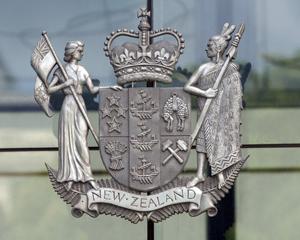
The proposals are in response to a Law Commission report and changes will be included in a bill to be introduced to Parliament before the end of the year. They include automatic name suppression for child victims and substantial penalties for breaches suppression orders.
Under the proposals, it would be harder for defendants to get name suppression. Suppression would be allowed when;
• it was needed to ensure a fair trial;
• it would prevent hardship for victims;
• publication of an accused's name would identify a victim whose name was suppressed;
• when it would put someone in danger;
• when naming would create extreme hardship and;
• when publication would impair ongoing investigations.
There had been growing concern that the current grounds for suppression orders were unclear and orders were made inconsistently, Justice Minister Simon Power said.
The proposals would also include new rules to further protect children.
"Until now, child victims have not been protected by automatic name suppression, while child witnesses and victims of specified sexual offences have. Child victims will also receive automatic name suppression, while automatic suppression for child witnesses will be increased from 17 to 18 years of age," Mr Power said.
There would be substantial increases to the penalty for breaches including:
• For individuals, doubling the maximum term of imprisonment from three months to six months. Judges will also be able to impose a fine of their discretion in lieu of imprisonment if the circumstances warrant it (the current maximum fine is $1000);
• Increasing the maximum fine for organisations from $5000 to $100,000;
• Introducing a new offence to capture New Zealand-based internet service providers or content hosts who do not remove locally hosted suppressed information which they know is in breach of a suppression order, and who fail to block access or remove it as soon as reasonably practicable;
A national register of suppression orders will be considered to help the media comply with suppression orders.
"I see merit in a register. But there are issues that need to be worked through, including who has access to it, the cost of running it, and the practicalities of keeping it up to date," Mr Power said.
Labour leader Phil Goff said he didn't think name suppression should protect the rich and powerful as it had on occasion in the past.
"The fact that you might be a lawyer and you've stolen some dead child's identity should not be a reason to get name suppression. There is absolutely some irony there," he said, referring to the ACT MP David Garrett affair.
Mr Goff said the ACT Party, which was totally against name suppression, was happy to use it for their own.
He also said there were times when he was justice minister when he felt uncomfortable with the way name suppression was used.



